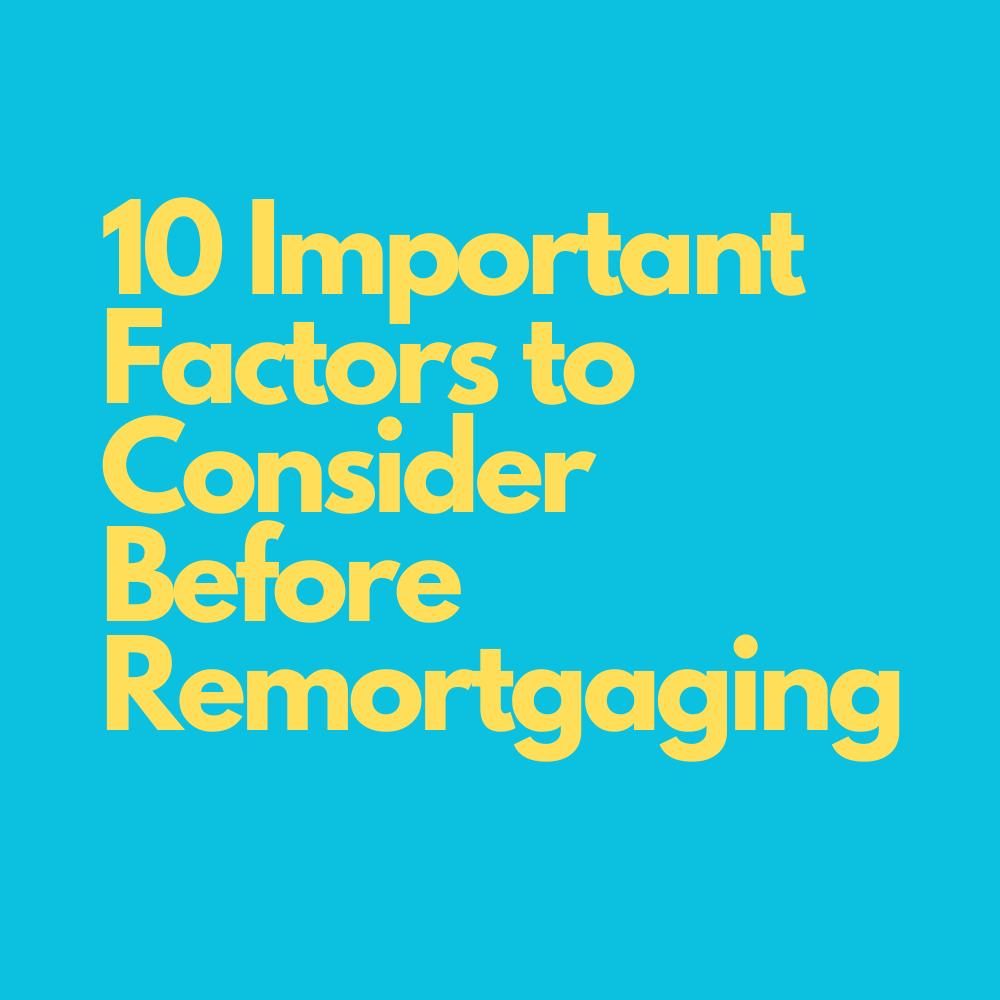
Remortgaging is a common way for homeowners in the UK to lower their monthly mortgage payments, get cash out of their home’s equity, or switch to a better deal. But before you jump into the remortgage market, you need to think about a number of things. In this article, we’ll talk about 10 important factors that will help you decide how to remortgage your home in the UK.
1. Assess Your Financial Situation
Before remortgaging, take a close look at your finances. Evaluate your income, expenses, outstanding debts, and credit score. A stable financial situation and a good credit rating will make it easier to secure competitive mortgage deals and avoid potential financial strain.
2. Check Your Current Mortgage Terms
Check your current mortgage agreement to see if there are any fees for paying off the loan early or leaving the loan early. Weigh the costs of these fees against the money you could save by refinancing to make sure it’s a good financial choice.
3. Research Interest Rates and Deals
The market for remortgaging is competitive, so it’s important to look into the mortgage products and interest rates that are available. Compare fixed, variable, and tracker rates to find a deal that best suits your needs and preferences.
4. Loan-to-Value (LTV) Ratio
The LTV ratio is a significant factor in determining your mortgage interest rate. A lower LTV ratio often results in lower interest rates and better mortgage deals. Aim to reduce your LTV ratio by increasing your equity or paying off more of your mortgage before remortgaging.
5. Consider a Mortgage Broker
A mortgage broker can give you expert advice and let you know about deals that you can’t get anywhere else. They can help you navigate the remortgage process and find the best possible deal for your situation.
6. The Impact on Monthly Payments
Depending on the new terms of your mortgage, remortgaging can either raise or lower your monthly payments. Figure out how your monthly payments might change and make sure that it fits with your financial goals and budget.
7. Potential Fees and Charges
There are a number of fees and charges that can come with remortgaging, such as arrangement fees, valuation fees, and legal costs. Factor these costs into your decision-making process to ensure remortgaging remains a cost-effective option.
8. Consider the Mortgage Term
Shorter mortgage terms typically result in lower interest rates but higher monthly payments. On the other hand, longer terms offer lower monthly payments but may cost more in interest over the life of the loan. Consider your financial goals and circumstances when deciding on the length of your mortgage term.
9. Releasing Equity
Remortgaging can be a good way to get money out of your home’s equity for things like home improvements, paying off debt, or making a big purchase. Make sure that giving up equity fits with your financial goals and that you know how it will affect your mortgage and monthly payments.
10. Future Plans
Consider how your future plans might affect your mortgage needs. If you plan to move or expect significant changes in your financial situation, it may be worth delaying remortgaging or opting for a more flexible mortgage product.
Conclusion
Remortgaging your property in the UK is a good way to save money, lower your monthly payments, or get cash out of your home. By thinking about these 10 important things, you can make an informed decision and get the best mortgage deal possible for your situation. During the remortgaging process, don’t be afraid to talk to a mortgage broker or financial advisor for help.
Related articles:
The Pros and Cons of Remortgaging: Is It Worth It in 2023?
End of Your Mortgage Term? Here’s How to Prepare for a Smooth Remortgage
Exploring Guarantor Mortgages Homebuyers with Poor Credit
